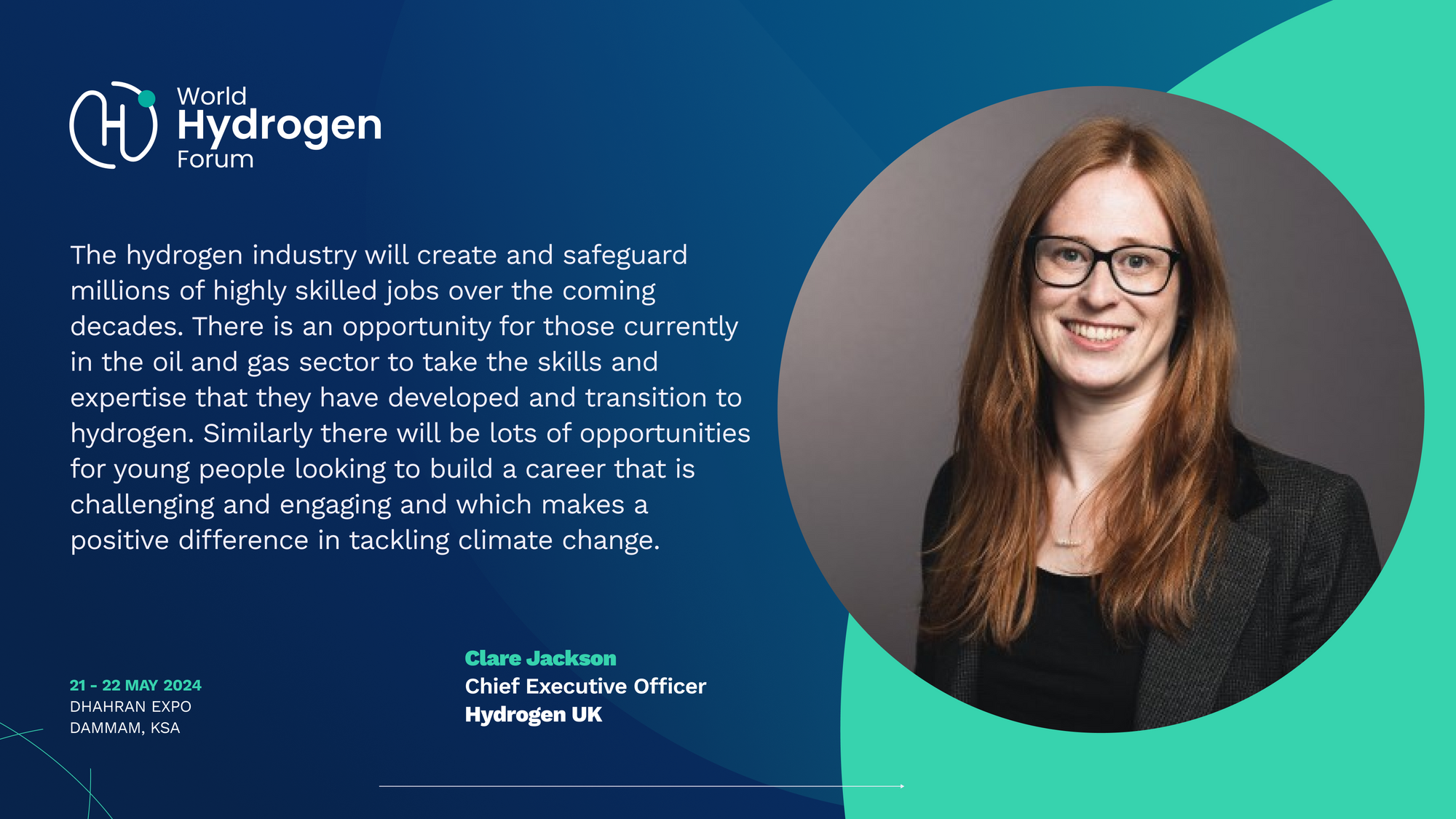Insightful Q&A session featuring Clare Jackson Chief Executive Officer - Hydrogen UK, a prominent figure shaping the hydrogen landscape in the UK. Clare collaborates closely with industry leaders, government officials, and various organisations to strategize and implement steps crucial for scaling up hydrogen initiatives across the UK. With an extensive network within the hydrogen sphere, Clare provides invaluable guidance on leveraging hydrogen's potential for diverse sectors. In this session, Clare delves into critical aspects of the hydrogen industry, offering expertise on its global positioning, sustainability methods, infrastructure challenges, job opportunities.
#WHF: How is the Hydrogen Industry currently positioned Globally, and what implications does its current state hold for the nation's economy?
#Clare Jackson: Hydrogen offers a unique opportunity for countries to deliver deep and cost effective decarbonisation as well as high quality clean jobs and economic growth. Hydrogen’s ability to store energy in large quantities for long periods of time makes it the perfect complement to the role out of renewable energy generation which is intermittent in nature. In addition it is well suited to decarbonising sectors which are challenging to electrify such as heavy industry, maritime and aviation.
Interest in hydrogen has been growing rapidly globally with governments and industry investing billions into technologies and projects that will make the hydrogen economy a reality. We expect 2024 to be a big year for hydrogen, particularly in the UK, where we will see the first large scale projects take final investment decisions and begin construction.
#WHF: Hydrogen production plays an important role in attaining sustainability goals. Can you suggest the methods that are being used to produce green hydrogen?
#Clare Jackson: In the UK we are taking a “twin track" approach to hydrogen production, meaning that the government will be supporting both electrolytic production and Carbon Capture and Storage enabled production. We have the ambition to have 10GW of production capacity by 2030, at least half of which will be electrolytic. By including both major production pathways, the UK hopes to kick start the use of hydrogen in our economy faster. As for electrolytic production, we expect the energy inputs to come from a range of sources such as offshore wind, solar and nuclear.
#WHF: How can we address the challenges of hydrogen transportation and storage to facilitate its widespread use in various sectors?
#Clare Jackson: Development of support schemes for hydrogen production have tended to move faster than the support schemes for transport and storage of hydrogen. However, it is imperative that we rapidly unlock investment in network and storage infrastructure to enable hydrogen to scale over the coming decade. We know that we are going to need large scale storage facilities as well as hydrogen networks and these infrastructure assets have long lead times meaning that there is no time to waste!
#WHF: What specific job opportunities and skills are in demand as the hydrogen industry develops globally?
#Clare Jackson: The hydrogen industry will create and safeguard millions of highly skilled jobs over the coming decades. There is an opportunity for those currently in the oil and gas sector to take the skills and expertise that they have developed and transition to hydrogen. Similarly there will be lots of opportunities for young people looking to build a career that is challenging and engaging and which makes a positive difference in tackling climate change.
The onus is on industry to identify where the skills gaps are likely to be as well as to engage young people to showcase the hydrogen opportunity!
#WHF: In what ways do events like the World Hydrogen Forum contribute to the advancement and collaboration within the hydrogen industry, and how can such platforms drive innovation and global cooperation?
#Clare Jackson: International collaboration is critical to ensuring that hydrogen can play the role that it needs to play if we are to deliver on our climate change ambitions. Events like the World Hydrogen Forum are great for fostering collaboration, sharing learnings and best practices and building new connections.

